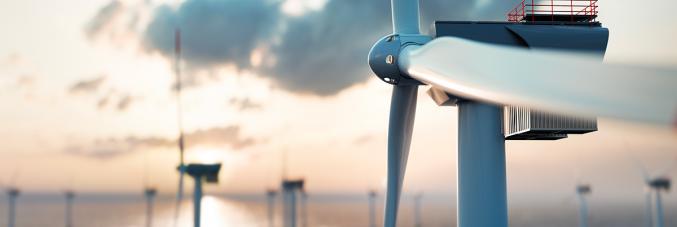
Offshore wind farms: a lifeline for millions of hectares of marine life
11.07.2025
An international team of researchers, including Laura Airoldi from the University of Padua, has published a study in "BioScience" highlighting the potential benefits of offshore wind farms for the marine environment. According to the study, even just 1% of global investments in offshore wind energy could significantly contribute to the restoration of millions of hectares of marine ecosystems, such as coral reefs, seagrass meadows, and coastal wetlands. These ecosystems are crucial for biodiversity, fish populations, and climate resilience.
The research, conducted by the Royal Netherlands Institute for Sea Research and published in "BioScience," emphasizes that allocating a small fraction of offshore wind investments by 2050 could help restore marine nature on a large scale.
"Restoring marine ecosystems benefits not only plants and animals but also people. Healthy seas and coasts absorb carbon, protect shores, and support fish populations. According to the study, every dollar invested in ecosystem restoration can generate between 2 and 12 dollars in societal benefits," explains Laura Airoldi, co-author of the work and a lecturer at the University of Padua. "This is particularly relevant in view of the expected exponential growth of the offshore wind sector: from 56 gigawatts in 2021 to an estimated 2,000 gigawatts by 2050."
The offshore wind energy sector, which is expected to grow exponentially from 56 gigawatts in 2021 to 2,000 gigawatts by 2050, thus has a unique opportunity to support the energy transition and positively contribute to marine ecosystem restoration. Christiaan van Sluis, the lead author of the study, suggests that integrating strategic biodiversity requirements into licensing and bidding processes could reverse biodiversity loss with a relatively small investment.
"Offshore wind has a unique opportunity: not only to support the energy transition but also to become the first marine industry to make a net positive contribution to large-scale ecosystem restoration," clarifies Christiaan van Sluis (The Rich North Sea). "By integrating strategic biodiversity requirements into licensing and bidding processes from now on, we can reverse biodiversity loss with just a fraction of the total investment."
The authors of the study urge governments to make marine restoration a standard requirement in offshore wind regulations, including the obligation to allocate a fixed percentage of investments to marine biodiversity. With the accelerated expansion of the sector, it is essential to structurally integrate nature restoration into policies.



